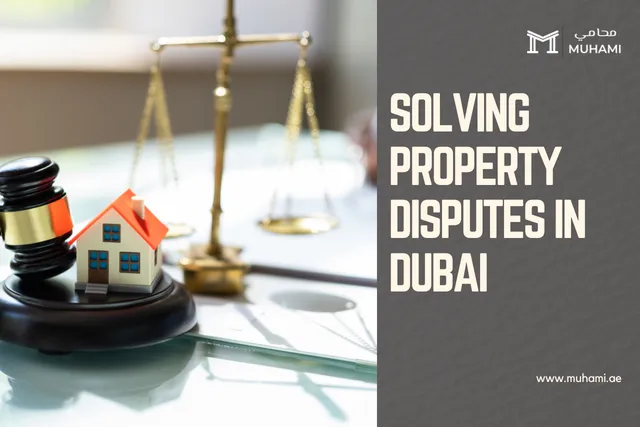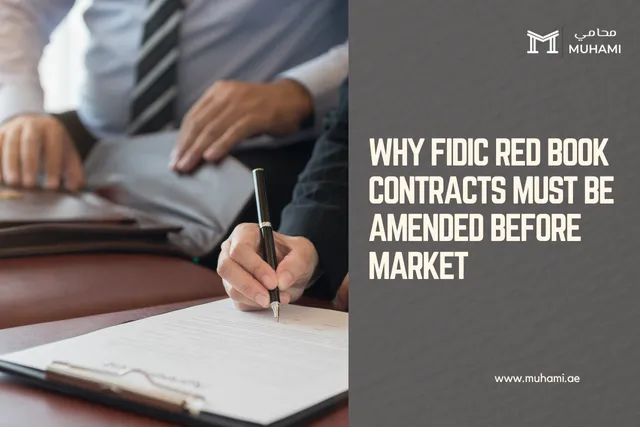Vicarious Liability of a Company in the UAE: How Responsible Are Employers for Employees' Wrongful Actions?

In today's evolving business environment, the concept of vicarious liability plays a critical role in corporate law. It holds companies accountable for the wrongful actions or omissions of their employees or agents. In the UAE, where business operations are regulated by a combination of civil, criminal, and labour laws, understanding vicarious liability is essential for companies operating across different sectors. This article explores the legal framework surrounding vicarious liability in the UAE, providing insights into how it applies and offering practical advice on mitigating risks.
The Legal Framework in the UAE
Vicarious liability in the UAE is governed by various laws addressing different circumstances under which companies can be held responsible for their employees' actions. This liability is not automatic but depends on whether the employee's wrongful act occurred within the scope of their employment or was closely connected to their duties.
-
UAE Civil Code (Federal Law No. 5 of 1985):
Article 313: This article establishes that employers are liable for the actions of their employees if these actions are committed in the course of their job duties. The Civil Code provides that for vicarious liability to arise, three requirements must be met. Firstly, a relationship where the "supervisor" has power or control over the employee must exist. Secondly, a wrongful act must be committed by the employee and finally, the harmful act that causes damage to a third party must be committed "in the course of employment".
Article 316: Further clarifies that a company can seek recourse from the employee if the wrongful actions were willfully negligent or fell outside the bounds of normal job responsibilities.
-
Cybercrime Law (Federal Law No. 5 of 2012):
In today's digitally connected world, companies may also be held liable for cybercrimes committed by employees, particularly if such crimes are facilitated by insufficient cybersecurity measures. The 2024 revisions to this law place greater emphasis on corporate responsibility for preventing cyber offences and data breaches.

Examples of Vicarious Liability
The UAE's growing economy and increasing focus on regulatory compliance have brought vicarious liability into sharper focus. Below are some examples that demonstrate how courts in the UAE apply vicarious liability principles:
- Construction Company Accident: A major construction company faced legal action after several workers were injured at a worksite due to the site manager's failure to follow occupational health and safety standards. The court held the company vicariously liable for the manager's negligence, as the incident occurred within the manager's scope of duties. This case highlights the need for stringent safety protocols, especially in high-risk industries like construction.
- Retail Company and Employee Fraud: A UAE-based retail chain was found liable after an employee defrauded customers by tampering with sales records. Although the company argued that the employee acted independently, the court ruled that the company's lack of internal monitoring contributed to the fraud. This underscores the necessity for rigorous compliance mechanisms to prevent such liabilities.
- Healthcare Provider and Medical Negligence: A healthcare company was sued when a doctor on its staff negligently treated a patient, resulting in severe injury. The court found the company vicariously liable as the doctor was performing his duties when the incident occurred. This case illustrates the importance of ensuring that medical staff maintain high professional standards.
Mitigating the Risk of Vicarious Liability
While companies can be held liable for their employees' wrongful acts, they can take several steps to reduce their exposure to vicarious liability:
- Comprehensive Training Programmes and Detailed Company Policy: Ensuring that employees are well-trained in compliance, safety, and ethical standards can help reduce the likelihood of wrongful acts occurring. Creating a detailed Company Policy helps create a culture of responsibility within the workforce.
- Internal Audits and Monitoring: Regularly reviewing internal processes and systems helps companies identify potential risks. For example, if a company regularly audits its operations, it can detect issues before they lead to legal problems.
- Clear Employment Contracts: Contracts should clearly outline the responsibilities of employees and include clauses that emphasise compliance with company policies. This helps establish boundaries and can prove that certain acts are outside the scope of employment.
- Data Protection and Cybersecurity: As cybercrime becomes more prevalent, companies must invest in strong cybersecurity systems and train their employees on data protection measures to avoid liability for digital crimes.
- Third-Party Liability Insurance: Having liability insurance that covers employee actions can help companies mitigate financial risks associated with vicarious liability claims.
Exemptions from Vicarious Liability
There are specific defences that companies can use to avoid being held liable for their employees' wrongful actions. Some of the most commonly recognised exemptions include:
- Acts Outside the Scope of Employment: If an employee commits a wrongful act unrelated to their job duties, the company may not be held liable. The employer can argue that the action was a personal activity, not connected to the employee's official role.
- Intentional or Personal Acts: Companies are generally not held liable for intentional acts committed by employees for personal reasons. If the wrongful act is motivated by personal gain or grievances, the company can argue that the act was outside the scope of employment.
- Independent Contractors: If an individual is classified as an independent contractor rather than an employee, the principle of vicarious liability may not apply. Contractors usually work under their own supervision, and companies are not typically responsible for their wrongful acts unless there is direct control over their work.
- Frolic and Detour: This defence applies when an employee takes a significant departure (a "frolic") from their job duties for personal reasons. If the wrongful act occurred during such a departure, the company can avoid liability by proving that the employee was not acting within the scope of employment.
- Exceeding Authority: If an employee acts far beyond the authority granted by the company, particularly in ways that are clearly outside their role, the company can use this as a defence. The employer must show that the employee was not authorised to perform the act in question.
- Lack of Causal Connection: For vicarious liability to apply, there must be a direct link between the wrongful act and the employee's job duties. If there is no connection, the company can avoid liability by demonstrating that the act was unrelated to the employee's role.
- Criminal Acts Not Benefiting the Company: In criminal cases, companies can argue that they should not be held liable if the employee's criminal act did not benefit the company in any way. If the wrongful act was not committed to further the company's business interests, the employer can use this as a defence.
Conclusion
Vicarious liability continues to play a significant role in shaping corporate practices in the UAE. Businesses are expected not only to monitor their employees' actions but also to implement systems that prevent misconduct. As the legal landscape continues to evolve, businesses must stay vigilant and ensure compliance with local regulations. By proactively addressing potential risks and reinforcing internal controls, companies can safeguard themselves against the legal and financial consequences of vicarious liability.
Understanding the principles of vicarious liability is now essential for any business looking to operate or expand in the UAE. Taking the necessary steps to mitigate these risks is no longer an option but a critical business requirement.
Any Questions?
Connect with lawyers and seek expert legal advice
Share
Find by Article Category
Browse articles by categories
Find Article by Practice Area
Browse articles by practice area
Related Articles

Solving property disputes in Dubai
A practical, step by step guide: Two things decide how a property dispute en…

Solving property disputes in Dubai
A practical, step by step guide: Two things de…

Cash locked in VAT is cash you cannot u…
A practical guide to reclaiming VAT on commercial real estate in the UAE Two…

Cash locked in VAT is cash you cannot use to run …
A practical guide to reclaiming VAT on commercial…

Why FIDIC Red Book Contracts Must Be Am…
Introduction For Owners and Contractors in the UAE, the unamended FIDIC Red …

Why FIDIC Red Book Contracts Must Be Amended Befo…
Introduction For Owners and Contractors in the…

